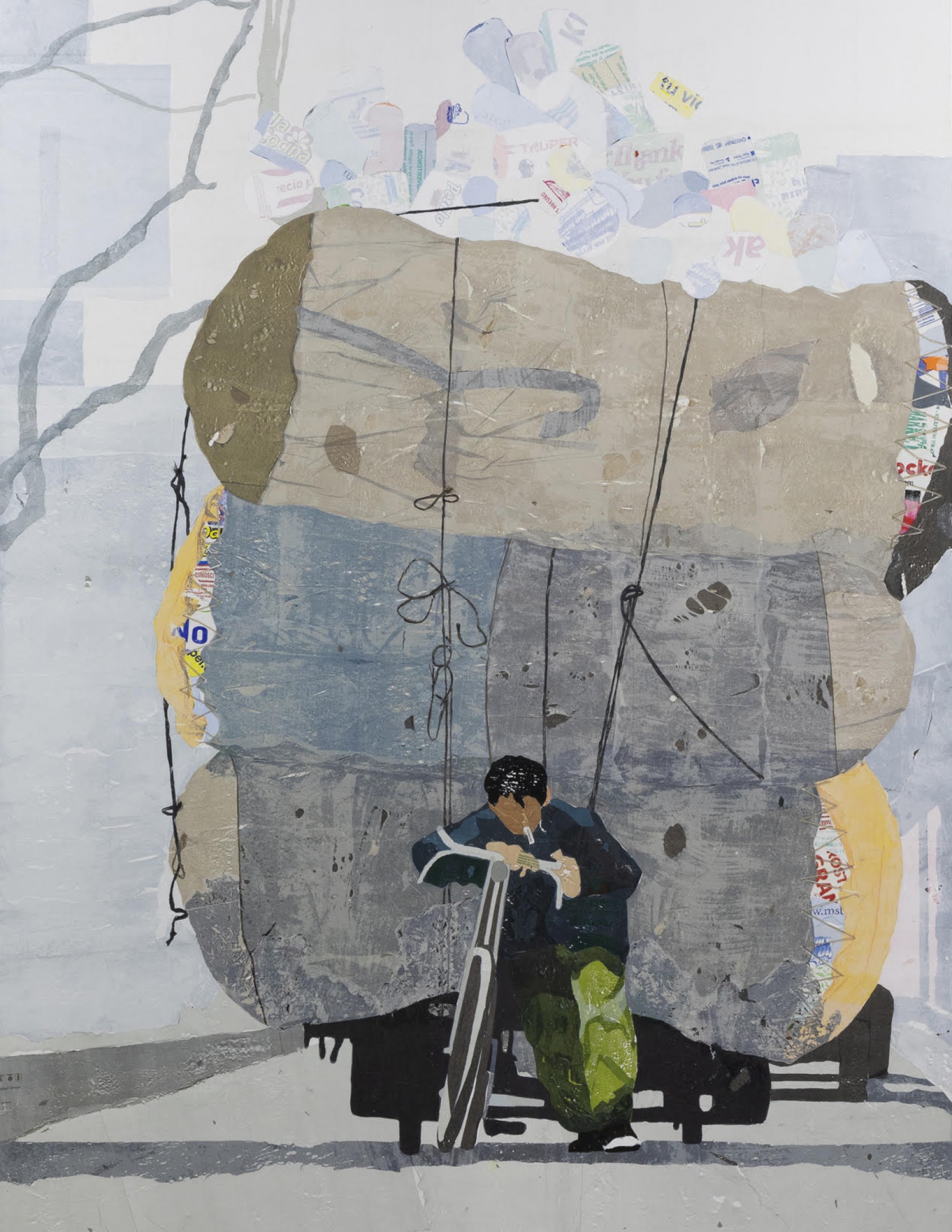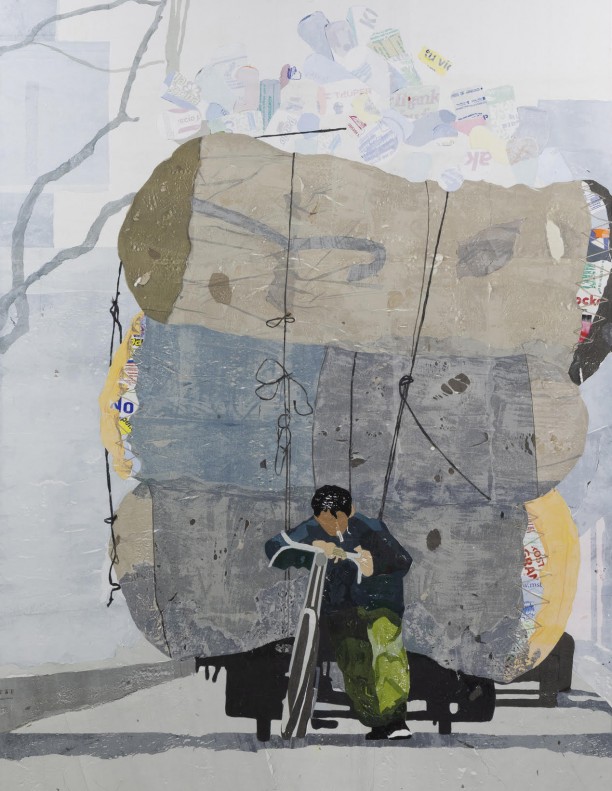Plastic pollution is wreaking havoc on our health and the health of the planet. An estimated 359 million tons or more of plastics enter markets around the world each year; only 9% is recycled and none of it ever fully goes away. From bottles to microplastics, it is now prevalent in our waterways, oceans, soils, bloodstreams, and atmosphere. The effects of this pollution are vast and varied, including trashed waterways, destruction of marine life, inhibited water uptake by plants in agricultural soils and forests, and even decreased sperm counts and increased estrogenification of human hormones.
This panel discussion brings together a range of artists and advocates to discuss the multithreaded hydra that is plastics pollution and how we can get our hands around it. Participants include Melissa Aguayo, Co-Founder and Co-Chair of the Reusable LA coalition and US Coordinator for Break Free From Plastic; installation artist and sculptor Liz Larner, whose deep, research-based practice explores problems such as the pervasive and exponential presence of plastic in the world; artist Hugo McCloud, whose mixed-media works addresses issues of class, labor, geopolitics, and the environmental impact of plastic; and Erica Montelongo, a local climate justice and youth advocate, artist, and community composter working to support communities that are the most impacted by pollution and climate change. The panel is organized and facilitated by activist and organizer Calla Rose Ostrander.
Melissa Aguayo is an organizer, activist, and educator. A big believer in collaborative work, Melissa has worked with a diverse group of stakeholders to drive change. From grassroots community organizing, community science, language justice, coalition, and movement building, to policy and advocacy work, she brings a diverse skill set and a passion for bridging environmental and social justice issues. Melissa is currently the US Coordinator for Break Free From Plastic, Co-Founder and Co-Chair of the Reusable LA coalition, and Board Member of Plastic Free Restaurants. In all her roles, she's committed to centering the knowledge and expertise of impacted voices, creating welcoming spaces for intersectional collaborations, and driving systemic change. As a wife and mother of two, Melissa is dedicated to doing her part in building a sustainable, socially just, and equitable future.
Liz Larner (b. 1960, Sacramento, CA) lives and works in Los Angeles. She attended the California Institute of the Arts, where she received a BFA in 1985. An inventor of new forms, Larner explores and extends the conditions and possibilities of sculpture in her work, which has been the subject of numerous solo museum exhibitions. This year, her work was presented at SculptureCenter, Long Island City in a major survey exhibition, Don’t put it back like it was, which will travel to the Walker Art Center, Minneapolis in April 2022. A solo presentation of her work titled below above will be held at the Kunsthalle Zurich beginning in June 2022.
Hugo McCloud's newest body of figural work reflect on notions of class, particularly through the use of plastic bags. His experimentation with plastic bags began after traveling to India and seeing multi-color polypropylene plastic sacks everywhere. Observing the downcycle of these bags from their creation, to distribution of products, to the trash pickers in Dharavi slums, McCloud saw how this ubiquitous material passed through the hands of individuals at every level of society. These representational works address issues concerning the economics of labor, geopolitics and the environmental impact of plastic. McCloud continues his practice of incorporating industrial materials using plastic as a tool to better understand our similarities and differences as a human race; to connect to our environment; and to contribute to reversing the negative impact of our carbon footprint.
Erica Montelongo is an artist based in South Central, Los Angeles. Growing up, Erica was interested in art but did not have access to resources for her to explore her creativity. This was a common experience in her neighborhood. Being an artist felt out of reach. In her working class family, being an artist was not encouraged because of the assumption thar it would never be a sustainable career. It wasn’t until she was a young adult that she came across an art-based collective named IPR Artz. Here, Erica started discovering different mediums of artistic expression. Being around other creatives changed her life and gave her the drive to pursue her art. Erica works with acrylics, aerosol paint, colored pencils, and silk screening. She has been a part of local projects assisting lead artists as well as working on her own projects. While she is primarily self-taught, Erica has also trained in silk screening, painting and drawing at Los Angeles Trade Tech. She is currently continuing her artistic career as a mixed media artist while working in the environmental justice field. Her art focuses on self-discovery, self-reflection, Mother Earth, her community and their struggles, while highlighting culture, knowledge and liberation.
Calla Rose Ostrander is a science communicator, advisor and organizer. A political economist, she was a Rocky Mountain Institute Fellow and worked in climate policy for the City of Aspen and City and County of San Francisco for just under a decade. For the past eight years, she has worked in the soil health movement supporting leaders, policies, science, and the establishment of on-ground communities of practice in California and throughout the southwestern United States.
MOCA’s environmental programming series highlights the museum’s work around climate, conservation, and environmental justice. Guided by the work of the MOCA Environmental Council, the first sustainability council at a major arts museum in the United States, this series presents artists, activists, and scholars committed to critical ecological issues in Los Angeles and globally.
The 2022 series is made possible by Nora McNeely Hurley and Manitou Fund.
Public programming at MOCA is presented by the MOCA Thrive Fund courtesy of Chara Schreyer.

Hugo McCloud, one in front of the other, 2019. Courtesy of the artist and Vielmetter Los Angeles. Photo by Dawn Blackman.
Pollution, Policy, and Art
Lecture Environmental CouncilProgram

Program
Thursday, Apr 14, 2022 6:30pm
Pollution, Policy, and Art
This panel discussion brings together a range of artists and advocates to discuss the multithreaded hydra that is plastics pollution and how we can get our hands around it. Participants include Melissa Aguayo, Liz Larner, Hugo McCloud, and Erica Montelongo. The panel is organized and facilitated by activist and organizer Calla Rose Ostrander.